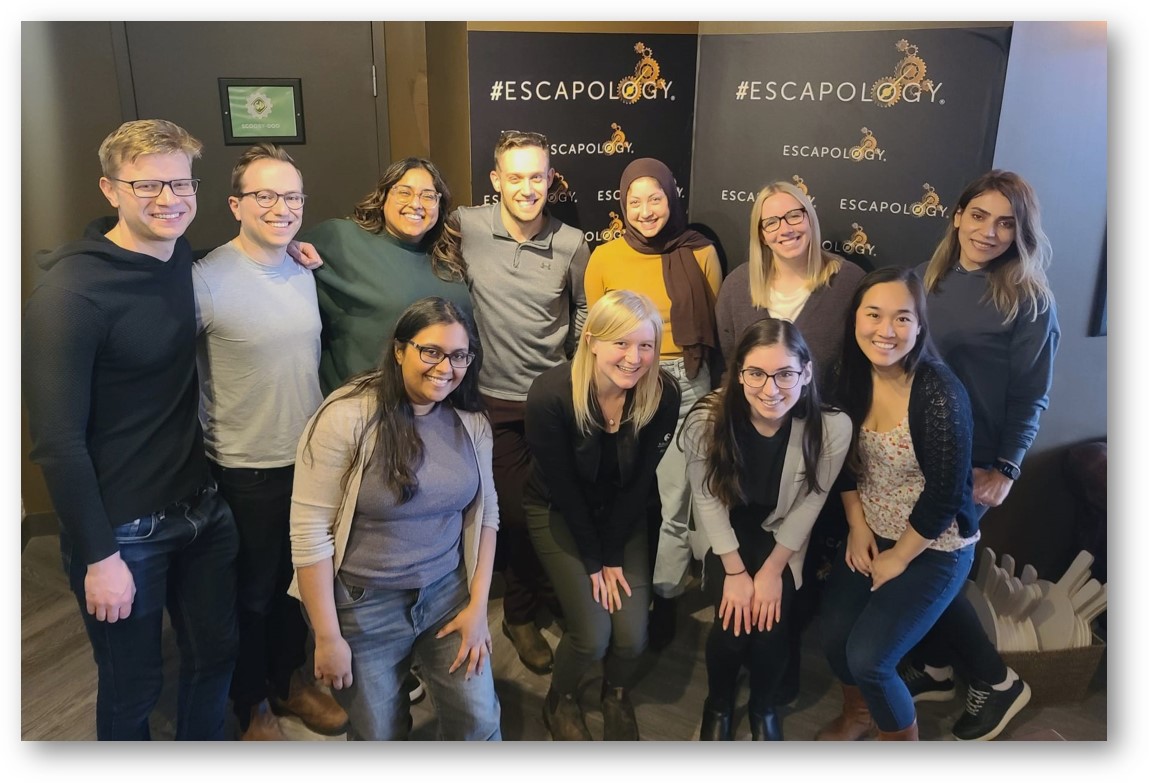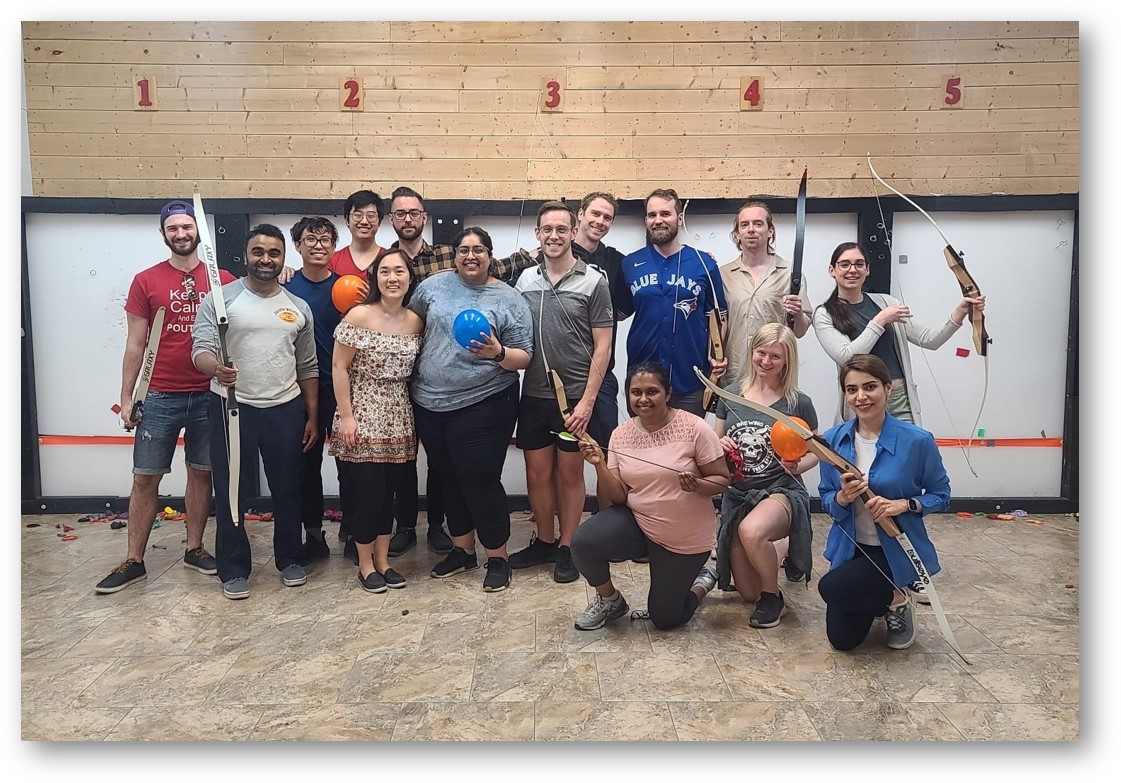Future Residents

Why Train at Schulich School of Medicine & Dentistry, Western University?
The Psychiatry residency program of the Schulich School of Medicine at Western University is a medium-sized program. Residents have access to a variety of learning experiences, while being in a supportive environment within a community of colleagues and supervisors.
We offer our residents a rewarding and stimulating environment that provides the resources to become an outstanding psychiatrist. At Schulich Psychiatry, some of the program highlights include:
- A wide variety of clinical rotations, with supervisors who are motivated to teach;
- Unique clinics such as PEPP (Prevention and Early intervention Program for Psychosis), FEMAP (First Episode Mood and Anxiety Program), the Parkwood ACT program and the Child and Parent Research Institute (CPRI), one of two quaternary-level Child Psychiatry facilities in Ontario;
- A full academic day with a variety of learning sessions;
- Access to a wide variety of research and mentorship opportunities with world-renowned researchers and experts in their field, such as Dr. Ruth Lanius (PTSD), Dr. Rob Nicolson (Developmental Disorders), Dr. Elizabeth Osuch (Youth Mood and Anxiety Disorders) and Arlene MacDougall (Social Enterprise and Innovation for Mental Health);
- Access to departmental continuing professional development (CPD) sessions such as monthly departmental Grand Rounds, "Learning After Five", and Monday lunch-hour CPD sessions with experts from both outside and within our department;
- Reflection Groups in PGY2-4 – share with and learn from challenges experienced by your colleagues in a reflective practice group facilitated by faculty on a different focus area each year;
- Multiple elective options in PGY1, PGY2 selectives, 2 blocks of electives in PGY4 and a year of elective time in PGY5;
- Child and Adolescent Psychiatry and Geriatric subspecialty residency programs
A Faculty of Renowned Researchers, Scholars, and Clinicians
The faculty members are open and approachable instructors who strive to create an attentive, stimulating and collegial working environment. Western is home to leading clinicians and researchers in areas such as trauma, psychosis, mood and anxiety, and neuro-imaging.
The Program Director, Associate PD and Postgraduate Education Administrators are approachable, responsive, and supportive of each Western resident. They will advocate on your behalf and have open lines of communication for any concerns. Along with hosting monthly meetings to discuss issues and program updates, the PD or APD personally meet with each resident four times a year to review progress, discuss your goals and offer career counselling.
Varied Training Facilities
Schulich Medicine provides several sites for you to explore diverse clinical and robust on-the-job training opportunities. Along with our large sites in London and Windsor, you will have numerous occasions to work in associated communities and various rural facilities. Rural site rotations are not mandatory but are supported and encouraged.
Our facilities in London include:
- Victoria Hospital & Children’s Hospital
- University Hospital
- Parkwood Institute
- Southwest Centre for Forensic Mental Health Care
- Child and Parent Resource Institute (CPRI)
- Vanier Children’s Services
Our facilities in Windsor include:
- Hotel-Dieu
- Windsor Regional Hospital
Our community sites include:
- Stratford
- Woodstock
- St. Thomas
- Chatham
Enriching Resident Life
The structure of the Schulich Medicine residency program enables residents to participate in both academically and socially rewarding experiences. Residents create supportive and cohesive networks across each year. The collegiality amongst the residency group and personal working relationships with the Program leadership and faculty will further contribute to your knowledge and training.
During your first month, you will enjoy a comprehensive orientation that includes introductory teaching sessions, introduction to hospital and community resources and a 2-week Transition to Discipline clinical rotation.
Additional support for residents includes:
- Monthly resident meetings. Residents have protected time to get to know one another, discuss their training, learn from each other’s clinical experiences, share challenges and achievements, plan social events, and work together through committees;
- See your co-residents frequently. Not only is our clinical work in a shared environment, but seminars also occur during protected curricular time with your year and the entire residency body;
- Incoming PGY 1 (Post Graduate Year One) students are matched to resident mentor for support for both residency and non-residency life matters;
- Share on-call responsibilities with another resident, which provides company and assistance. The junior (PGY1 or 2) is usually paired with a senior (PGY3-5) resident for call. The first few call shifts are done as shadow call with a junior resident. R1s are scheduled as one of three residents on call and will learn from a full team of residents and interdisciplinary professionals;
- Wellness committee resour ces, including specific faculty and resident representatives for each PGY year who are available to offer additional support. The wellness committee also reviews different aspects of the program from a resident wellness perspective;
- Excellent exam preparation, including a practice OSCE course starting in PGY2, consolidation block in PGY4 and flexible scheduling of call in the senior days.
Our program prioritizes our trainees’ wellness and organizes many enjoyable opportunities and events to cultivate team building and balance in residency life.
Resident retreat days promote connection, fun, and a shared sense of well-being among PGY 1-5 residents. Resident retreats are an excellent way to share information and experiences about current clinical rotations and strategies for navigating resident life challenges. Some of our past retreats have included minigolf and bowling, chocolate making, ropes and trampoline course, and pottery making, often followed by dinner at a local restaurant.


The Vibrant City of London
London’s smaller city atmosphere provides a comfortable yet interesting place to live. With a relatively low cost of living, you will enjoy reduced traffic with less than a twenty-minute commute time. Known as the "Forest City,” London has plenty of outdoor trails to walk, run, or bike and we are within driving distance to the beach. London’s diverse culture offers plenty of activities, including theatre, restaurants of all types, live music, Canada Life Place (with minor league sports and a surprising array of concerts) and shopping. If you miss the “big city” experience, you can take a two-hour drive or train ride to Toronto or Detroit. Explore Western's Living in London website for more information.









